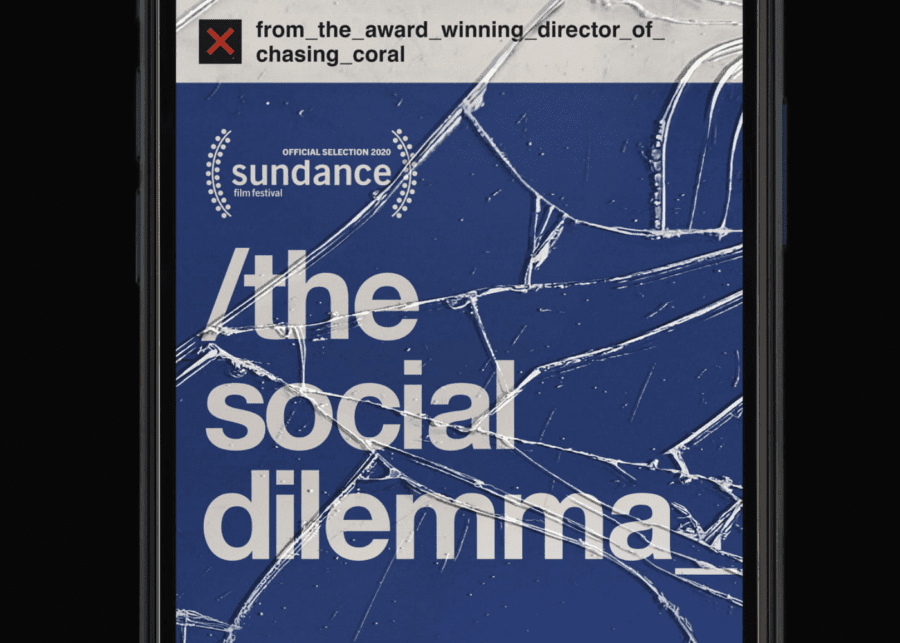
The Social Dilemma reveals the negative aspects of social media but conveniently leaves out the good.
Social media. Where do I start? From Facebook and Twitter to Instagram and TikTok, these nifty apps have seamlessly fit into our day-to-day activities, be it for work or personal use. While we’re all aware of the flip side (read: social media addiction), that’s just the tip of the iceberg. Enter The Social Dilemma.
This recently released documentary on Netflix –which has gotten raving reviews – shows us the dark side of social media through interviews with former employees of tech giants, a fictional storyline and an exaggerated version of how artificial intelligence works. It’s certainly eye-opening. Here’s what I thought…
The Social Dilemma: An honest review
What is the social dilemma?
From the get-go, interviewees spill the deets on the dangers of social media. These are former employees who have left tech corporations like Facebook, Twitter and Google for ethical reasons. If you find yourself questioning whether this is a murder documentary, you’re not alone. Thanks to its ominous music paired with profound quotes that feel like they’re the last words of a dying man, the show paints social media as a notorious villain with a sinister motive.
It’s not just about addiction

While I am guilty of ‘doom-scrolling’, the documentary adds a little colour to this brainless (or automatic) behaviour by personifying artificial intelligence on the backend of social media. Basically, imagine three guys doling out content to your feed. They gather important information like your interests, who you connect with regularly and how long you spend on a certain ad. All this is to attempt to provide tailored content that will grab your attention. Think of it as a bespoke experience, meaning no two timelines are the same.
Now that we’ve established how addiction occurs, the documentary takes a deeper look into why your attention is so crucial. Simply put, you ARE the product. Your data is sold to companies and they rake in the dough when you buy from them. So the next time you get an ad for something you just chatted about with your friends, know that big brother is listening (aka micro-targeted advertising).
Real or fake?
Another “wow” moment has to be the topic of fake news. Remember how no two timelines are the same? So it’s very easy for someone (ahem, especially if you’re a boomer) to fall down the rabbit hole of your own creation. Since artificial intelligence gives you what you like, all you see is similar content day in, day out. Now can you believe why some people think the world is actually flat?
The documentary also highlights the Pizzagate conspiracy, a debunked theory about an underground child sex ring in a pizza joint. Someone actually bought into the insane theories on social media and decided to bust a pizza joint, gun in hand.
Also, who can forget the fake news about wildlife thriving amidst the global lockdown? From elephants breaking into a village and getting drunk on corn wine to dolphins making an appearance in Venice, these are perfect examples of how easy it is to spread misconceptions, as harmless as the intention may be.
The mental quandary

Half of the battle happens in our minds when it comes to addiction. Social media addiction, in particular, is very nuanced. There’s FOMO – the fear of missing out. And the constant need for validation, which is perfectly depicted in the scene where one character is disappointed with the number of likes on her selfie. Plus, the obsessive appetite for new information and the feeling of gratification when someone likes or comments on your posts. But is social media really as bad as it’s cracked out to be?
What The Social Dilemma fails at
I get the documentary’s message – social media is the devil reincarnate. But if it’s so bad, why didn’t it offer us solutions? Personally, I feel the documentary should have covered the upside of social media as well, to make it a fair debate.
Social media has created new jobs, connected estranged family members and friends, and even helped small businesses get their name out. It has galvanised people for good causes like climate change and supporting the Australian bushfires relief efforts earlier this year. Hello, do I have to remind you that we have also been surviving this pandemic with the help of social media?
Should you really ditch it all?

I mean, let’s be honest. We could definitely be less reliant on social media, but like most things in life, moderation is key. Too much of anything can easily be bad for you. So reduce your time spent on these apps by setting a time limit. And turn off the notification function as pointed out – it’s just one of the tactics to keep you glued to the screen. However, even though the documentary has good intentions, I can’t help feeling there are other pressing issues that need our immediate attention. Covid-19, systemic racism and climate change, for starters.
Final thoughts…
While I encourage everyone to watch it, it’s also worth remembering that social media is a double-edged sword. It’s really up to you whether you want to abuse a tool that’s designed to make our lives better.
Oh, and the biggest irony of it all? The fact that we’re watching the documentary on a streaming platform that invented binge-watching. It’s a never-ending abyss, I tell you.

